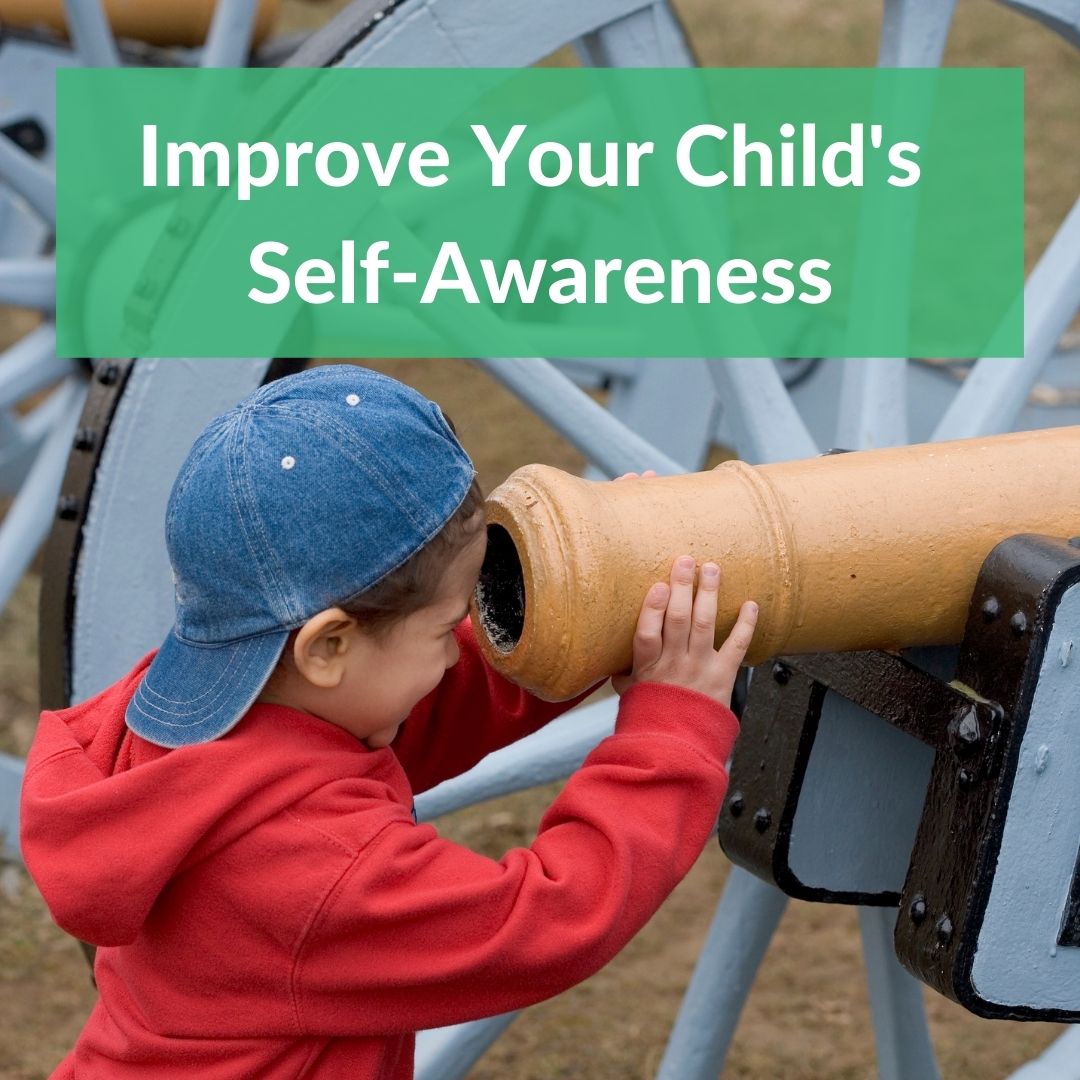Updated: 8.4.25
Children are often unaware of their strengths and weaknesses. This can lead to low self-esteem, poor social skills, and difficulty making friends.
It’s important for parents to help their child understand themselves by highlighting their positive qualities as well as areas for improvement. 
This article explores how to nurture your child’s self-awareness so they can become confident in who they are.
What Is Self-Awareness?
Self-awareness is understanding our thoughts, emotions, beliefs, and behaviours. It helps guide our actions and decisions, even if we don’t always act accordingly.
Parents who want their children to thrive—both at home and in the wider world—should make developing self-awareness a key goal.
1. Be the Role Model
To teach self-awareness effectively, parents must model it themselves. Children learn more from what you do than what you say.
Model thoughtful behaviour, accountability, and healthy emotional expression. If you act impulsively or avoid responsibility but expect better from your child, this creates confusion.
Demonstrate how to express thoughts clearly and calmly. Use your own actions to guide your child through common situations positively. Pause, reflect, and show how to regain focus when irritated.
Ensure all caregivers are aligned in parenting approaches, so consistent messages reinforce growth in your child’s awareness and behaviour.
2. Accept and Recognise Your Child’s Emotions
Teach your child to identify and accept their emotions. Feelings aren’t weaknesses—they’re signals.
Without awareness, emotions can spiral into negative behaviours that harm self-esteem and social relationships.
Help your child verbalise feelings instead of acting out. Don’t shout or punish—listen, acknowledge, and give space to process emotions before discussing them.
Celebrate strengths and successes more often than you dwell on negatives. Remind your child how they’ve successfully overcome challenges in the past.
3. Empathise With Your Child
Listening to your child and understanding their perspective helps them feel secure and accepted.
Empathy teaches them how to respond with kindness and how to understand others’ behaviours. Children with strong empathy skills are better prepared for emotional and social challenges.
Take time to listen without judgement. If your child struggles to open up, offer privacy and patience—they may need space before sharing what’s on their mind.
4. Let Your Child Communicate Freely
Encourage open expression. Let your child know they can speak without fear of being judged.
Let conversations flow naturally—don’t rush or interrupt. Avoid interrogating your child, as it may discourage them from being open.
Listen actively and give your child the space they need to process and respond.
5. Pay Attention, Be a Listener, and Teach Problem Solving
Help your child define problems and understand why sharing is important.
Issues like bullying, academic struggles, or general unhappiness should be acknowledged and explored together.
Be patient and non-judgemental—some kids take time to open up. Remind them that every problem is manageable when tackled together.
Wrapping Up
Be a role model. Acknowledge emotions. Empathise. Allow communication. Teach problem solving.
These five steps form the foundation of emotional intelligence and self-awareness. With your support, your child can develop the confidence and coping skills they’ll carry for life.
Frequently Asked Questions
What is the best age to start teaching self-awareness?
You can begin as early as toddlerhood. Even young children can start identifying basic emotions and learning to express them.
What if my child doesn't want to talk about their feelings?
Give them time and space. Stay calm and available, and use play or drawing to help them open up in non-verbal ways.
How can I help my child handle failure more positively?
Normalize mistakes as learning opportunities. Celebrate effort, and talk about what can be learned from each experience.
Should I share my emotions with my child?
Yes—sharing your feelings (in an age-appropriate way) shows your child that it’s safe to talk about emotions and that even adults feel vulnerable sometimes.
How do I know if my child is becoming more self-aware?
Look for signs like naming emotions, asking thoughtful questions, showing empathy, or reflecting on their actions.






Share:
Unique Christmas Gift Ideas for Your Kid's in 2021